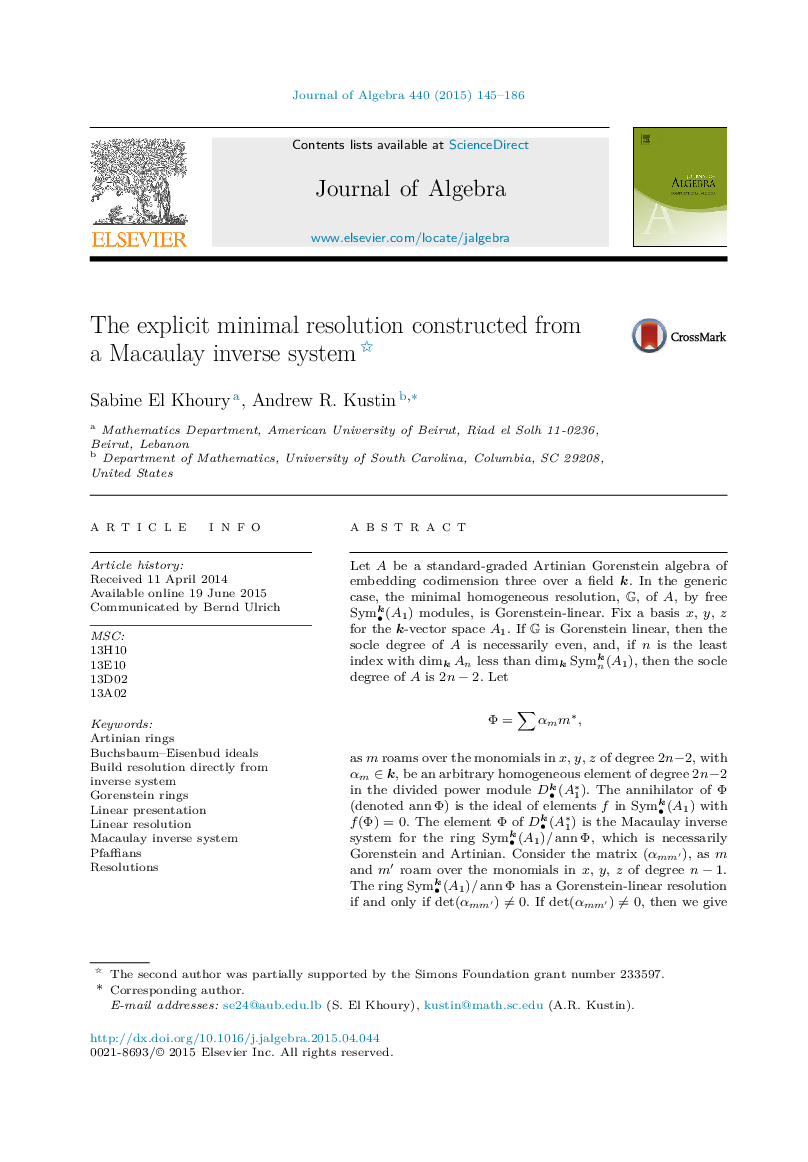| Article ID | Journal | Published Year | Pages | File Type |
|---|---|---|---|---|
| 4584122 | Journal of Algebra | 2015 | 42 Pages |
Let A be a standard-graded Artinian Gorenstein algebra of embedding codimension three over a field k . In the generic case, the minimal homogeneous resolution, GG, of A , by free Sym•k(A1) modules, is Gorenstein-linear. Fix a basis x, y, z for the k -vector space A1A1. If GG is Gorenstein linear, then the socle degree of A is necessarily even, and, if n is the least index with dimkAndimkAn less than dimkSymnk(A1), then the socle degree of A is 2n−22n−2. LetΦ=∑αmm⁎,Φ=∑αmm⁎, as m roams over the monomials in x, y, z of degree 2n−22n−2, with αm∈kαm∈k, be an arbitrary homogeneous element of degree 2n−22n−2 in the divided power module D•k(A1⁎). The annihilator of Φ (denoted ann Φ) is the ideal of elements f in Sym•k(A1) with f(Φ)=0f(Φ)=0. The element Φ of D•k(A1⁎) is the Macaulay inverse system for the ring Sym•k(A1)/annΦ, which is necessarily Gorenstein and Artinian. Consider the matrix (αmm′)(αmm′), as m and m′m′ roam over the monomials in x, y, z of degree n−1n−1. The ring Sym•k(A1)/annΦ has a Gorenstein-linear resolution if and only if det(αmm′)≠0det(αmm′)≠0. If det(αmm′)≠0det(αmm′)≠0, then we give explicit formulas for the minimal homogeneous resolution of Sym•k(A1)/annΦ in terms the αmαm's and x, y, z.
